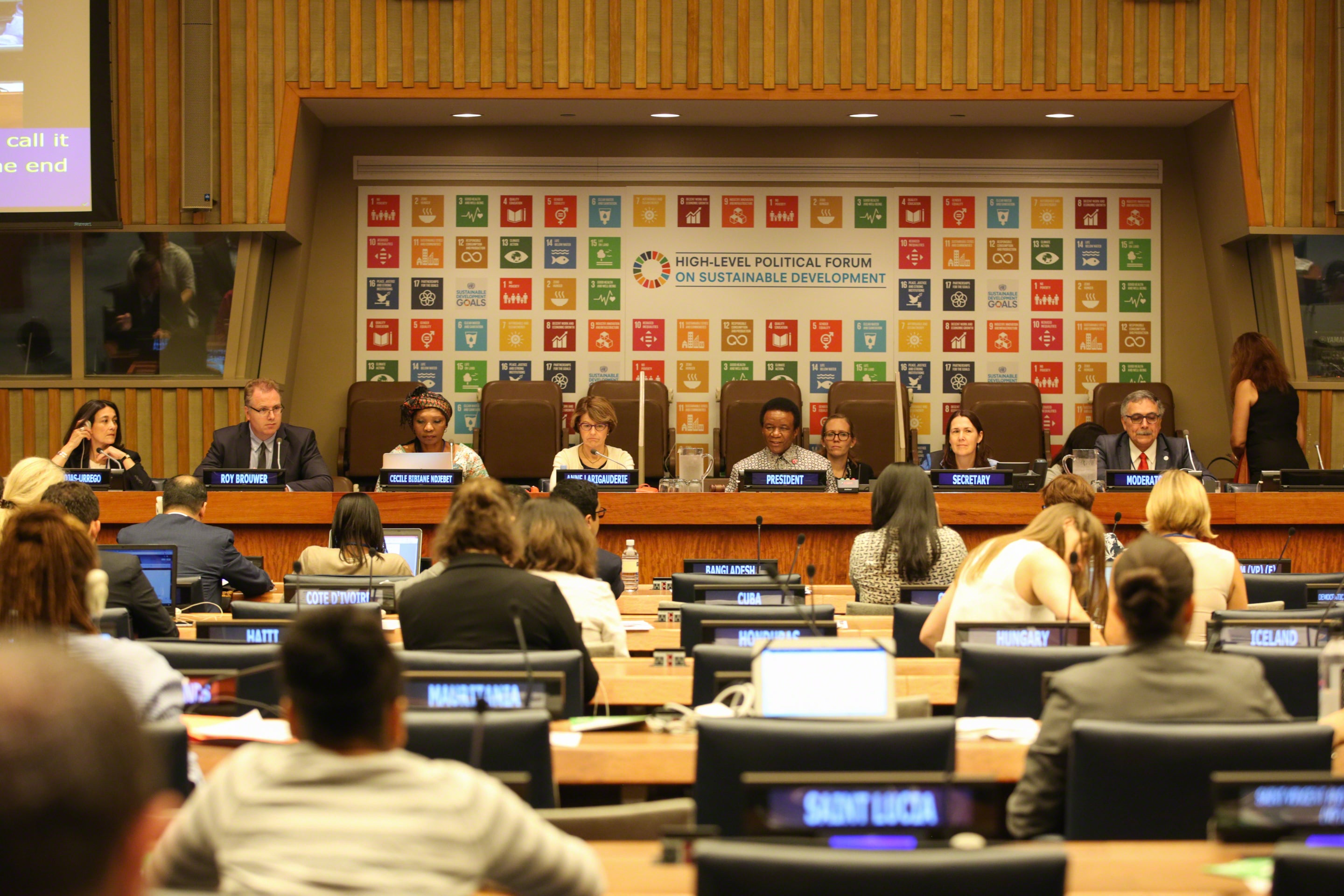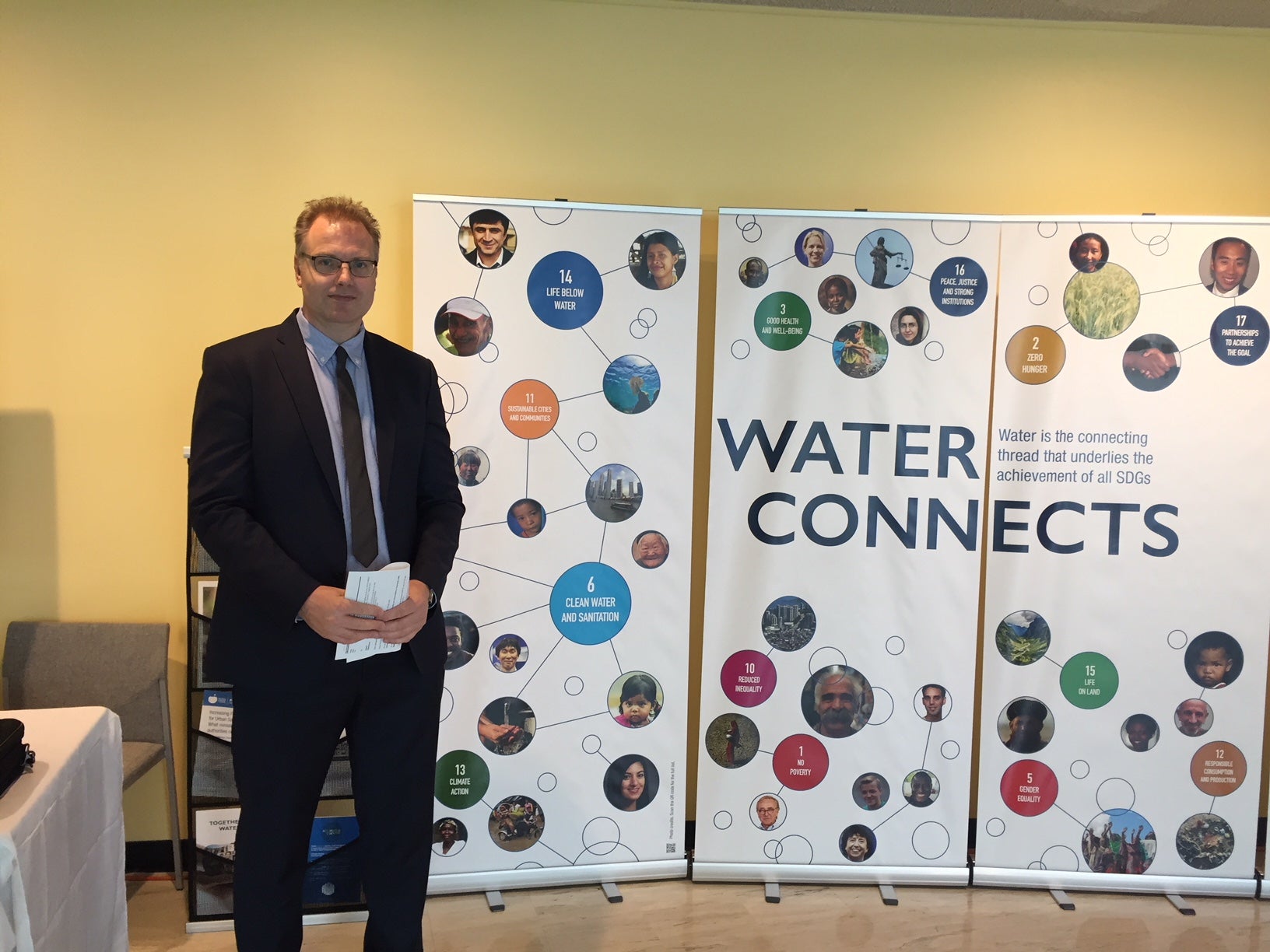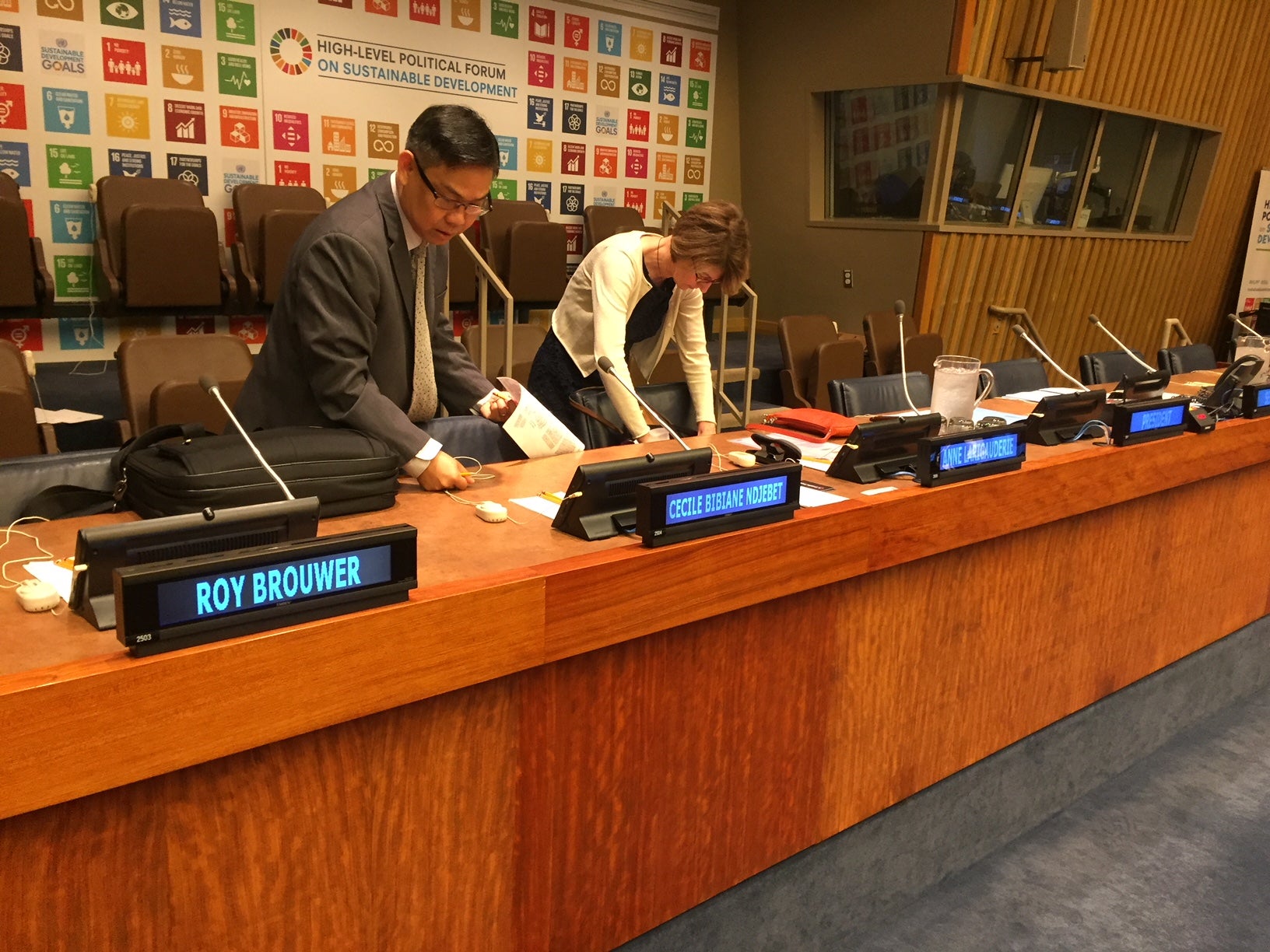
Executive director of the Water Institute Roy Brouwer, professor in Waterloo’s Department of Economics, was invited to be a part of a panel discussion during the 2018 session of the United Nations High-Level Political Forum on Sustainable Development (HLPF) in New York City on July 13.
The HLPF is the central UN platform overseeing the follow-up and review of the 2030 Agenda for Sustainable Development and its 17 Sustainable Development Goals (SDGs) since those were adopted by the Heads of State and Governments of all UN Member States in September 2015. This year’s theme was “transformation towards sustainable and resilient societies.”
“Given its expertise and experience in interdisciplinary integrated approaches to water management, the Water Institute has an important role to play in tackling the wicked land and water problems facing the planet,” said Brouwer. “Land and water use are intrinsically related. It was an honour to be invited to participate in this global discussion, specifically around SDG 15 — protect, restore and promote sustainable use of terrestrial ecosystems, sustainably manage forests, combat desertification, and halt and reverse land degradation and halt biodiversity loss.”
The two-week-long session featured thematic reviews and panel discussions from July 9-13, aimed at sharing best practices, providing proposals for innovative tools to trigger further progress and exchanging concerns and challenges related to key aspects of the 17 Sustainable Development Goals.

During the day, the Forum held two reviews on the implementation of SDG 15 and SDG 17 — strengthening the means of implementation and revitalize the global partnership for sustainable development.
Brouwer participated in the review by discussing his research about the use of payments for watershed services as a way to achieving SDG 15 and how such a policy instrument can change human behaviour and land use.
“Payments for watershed services involve downstream water users compensating upstream landowners as a way to encourage sustainable upstream land and forest management. Creating such a market-based system requires a willingness among downstream water users to pay, as well as a willingness of upstream landowners to accept payment,” said Brouwer, adding that there is little data about the impact of current payment‑for‑ecosystem services schemes.

During the discussion, more than 50 speakers took the floor to set out the various ways their Governments and organizations are striving to protect and improve biodiversity.
“Watershed forests provide a nature‑based solution to water security,” said Brouwer, emphasizing the need to better understand the impacts of land use changes on watershed biodiversity conservation. “While payments for ecosystem services schemes are promising, they require better spatial targeting and enforcement including international monitoring guidelines to measure their effectiveness.”